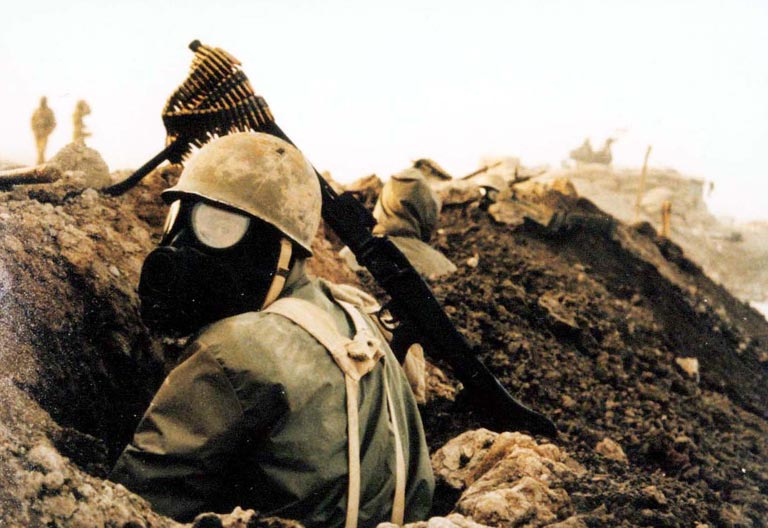
The Gulf War fought in 1990 – 1991, was the first conflict to take place in the new international order, following the end of the Cold War. It was also the first major conflict that the USA had undertaken since Vietnam. It was unique because of several reasons. For the first time ever, the UN had the support of both superpowers – Russia and United States in allowing the military invasion on the one country of the UN members. Also it was unique because it was the first such a situation that US, together with 10 Arab countries, allied against another Arab state.
This unprecedented confrontation was caused by many complex reasons and resulted in consequence that has changed the whole Future of Middle East and US relations with Iraq. The major reason for the Gulf War was the politics of the Iraqi leader, Saddam Hussein who had lunched an invasion of Kuwait in 1990. However, in order to understand why Saddam Hussein invaded Kuwait, some long – term causes need to be revised.
The war between Iraq and Iran since 1979 which lasted eight years, crippled Iraq with debts, many of these owed to Kuwait and Saudi Arabia. Despite requests, neither nation was willing to forgive these debts. To the long – term causes of Gulf War can be also counted US support towards Iraq – during 80s, despite Hussein’s slaughter of thousands of people and repressive regime. To the short – term causes can be included Iraqi actions such as execution of British journalist, intercepted items of developed and dangerous technology by British intelligence, Saddam’s threat to use chemical weapon towards Israel and finally deteriorating relations between Iraq and Kuwait because of economic crisis in Iraq.
Iraq-Iran war legacy
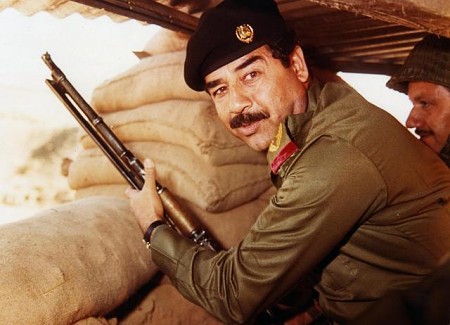
The reason of why Saddam Hussein launched an invasion of Kuwait in 1990, got its sources in the changing Middle Eastern situation during the 1980s. The Iranian leadership consisting of Shi’ite Muslims, hoped that the Shi’ites in Iraq would rise up against the nationalist and secularist ideology of the Ba’ath regime in Baghdad. They launched a propaganda campaign against Saddam Hussein, and Iran also supported the Kurdish people in Iraq in their longstanding struggle against the Iraqi government. These provocations were the trigger for Saddam’s invasion of Iran in 1980. Although Saddam Hussein intended a short and effective war, it turned to last since 1979, to 1988.
Despite the fact that Iraq proclaimed itself as the victorious country in this war, the long conflict transformed Iraq from a rich and prosperous country to one that was physically damaged and indebted in Kuwait and Saudi Arabia. Moreover, Iraq had a problem with huge bill for repairing the war – damaged infrastructure. The reconstruction was estimated for $230 billion. Despite the fact that Iraq had an income from oil revenue, due to the low prices of oil on the world market, it was not as high as expected. Even if every dollar of oil revenues had been spent on reconstruction, it would still have required two decades to repair the total damage.
US support and French weapons
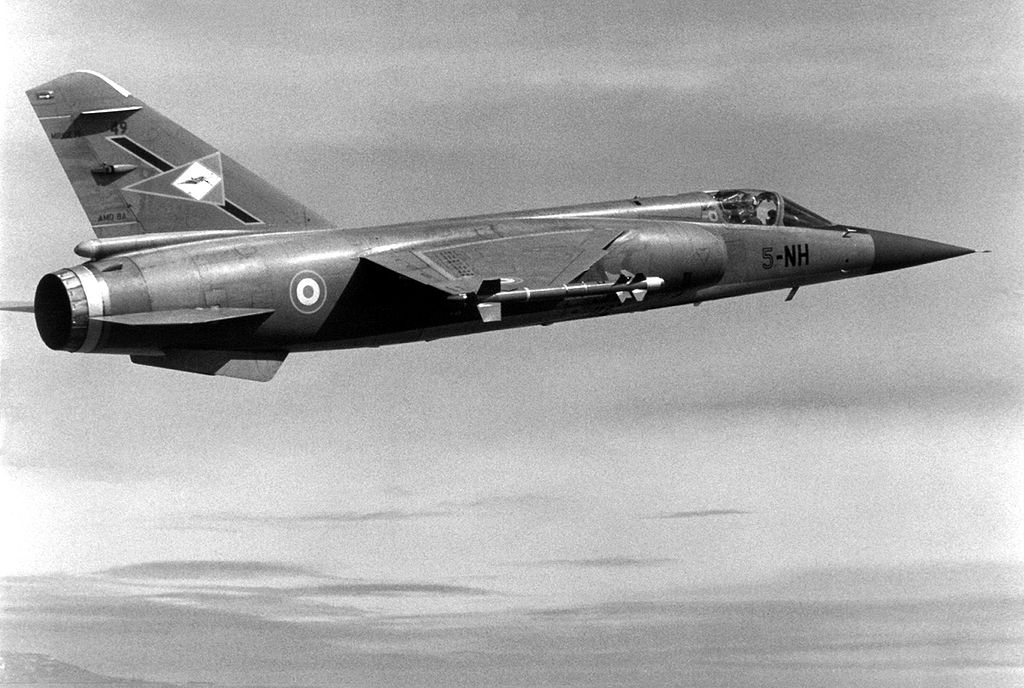
Another factor which contributed to the outbreak of Gulf War, was the US support for Iraq in the 1980s. US support for Iraq was meant to be a counterweight to the new anti – US regime in Iran. In 1982, the Department of State removed Iraq from its list of terrorist countries, so that it could qualify for US aid and credits. Moreover, annual trade between the two countries was more than $3 billion by 1990, most of this providing Iraq with food, though also weapons through ‘back door’ routes. Furthermore, the United States claimed that normal relations between these two countries would serve longer – term interest and promote stability in both the Gulf and the Middle East. The US advantages from trade and good relations with Iraq caused that they were turning a blind eye to Hussein’s slaughter of thousands of Kurds with chemical weapons and a violent, and repressive regime led by Hussein.
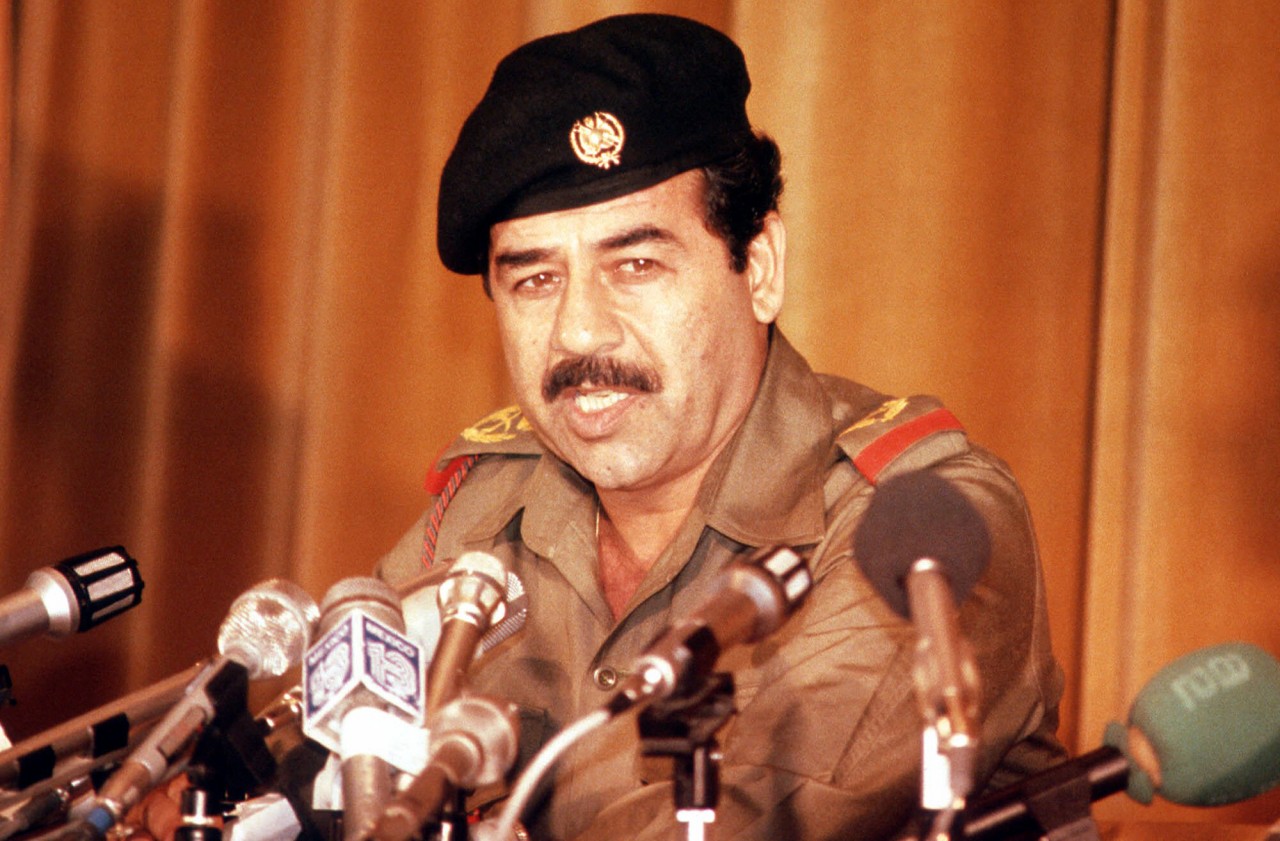
Moreover, other Western countries had also been happy to trade with Iraq. France provided Iraq with weapons, including the technology to build a second nuclear reactor, and by 1990 Britain was Iraq’s third largest trading partner. According to Lawrence Freedman, the arguments in London, Paris, Bonn and Washington remained the same: Iraq’s war with Iran was over and it was time for domestic reconstruction and thus good business opportunities. There was no international support for ostracizing the regime – therefore the only logical policy was to cultivate it to advantage claiming that this could encourage Saddam to stick to a more moderate path. Meanwhile, they turned a blind eye to the intensive efforts being made by Iraqis to procure the most sensitive military technologies – especially from Europe.
Saddam’s split with the West
Western hopes of Iraq moving to a more moderate stance evaporated immediately in 1990 when Saddam made a series of ruthless moves. In March 1990 Farzad Bazoft, a journalist working for the British newspaper The Observer, was executed in Iraq on trumped – up charges of spying. Moreover, British intelligence intercepted items of technology from the West that appeared to be necessary for long – range missiles and weapons of mass destruction (WMD). These events put pressure on the Western countries to halt arm sales. In April, Saddam made a threat to use chemical weapons against Israel.
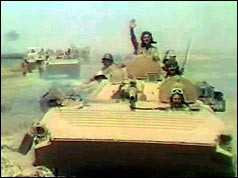
Meanwhile, the relationship between Iraq and Kuwait was deteriorating fast. There was a long – standing argument over the frontiers between the two countries. In the 1930s, the new state of Iraq had claimed that Kuwait, formerly a British protectorate, belonged to Iraq. In addition, there was unresolved disagreement over the right to exploit the Rumaila oilfield on the Iraq – Kuwait border.
Responce to the crisis: invasion of Kuwait
However, the immediate cause for war was the economic crisis in Iraq, and in 1990, Iraq put increasing pressure on Kuwait to help it solve this crisis. In February 1990, Saddam asked King Hussein of Jordan and President Mubarak of Egypt to inform Kuwait that Iraq not only wanted cancellation of wartime loans, but that he also needed additional funds of some $30 billion. Both requests were refused.
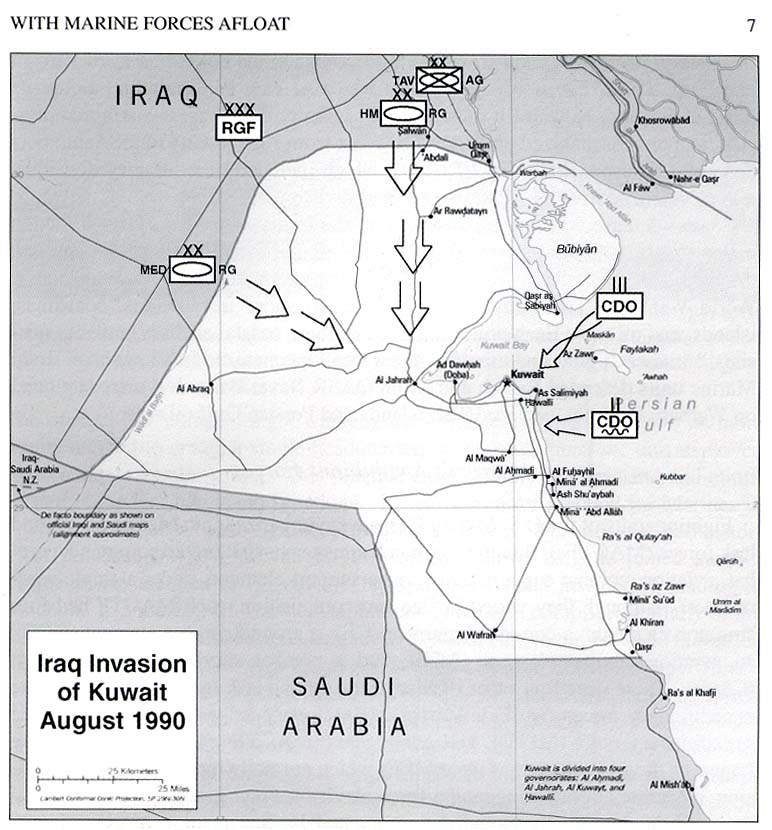
Furthermore, Iraq also requested that Kuwait keep to OPEC quotas for oil output. In July 1990, the dispute with Kuwait became much more intense. Saddam Hussein started making accusations against Kuwait that it had stolen $2 billion of oil from the Rumaila oilfield, which Iraq claimed as its own, and that the loans that Iraq had received during the Iraq – Iran War came from profits due to overproduction. He claimed that Kuwait’s unwillingness to cancel Iraq’s war debts constituted ‘military aggression’ and that Kuwait was ‘stabbing Iraq in the back with a poisoned dagger’. At the same time, large numbers of the elite Republican Guard divisions were moved towards the border of Kuwait. War was about to begin.
Aleksandra Szymczuk